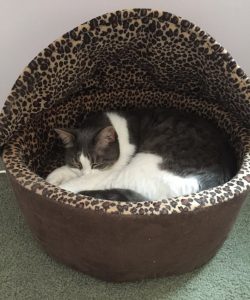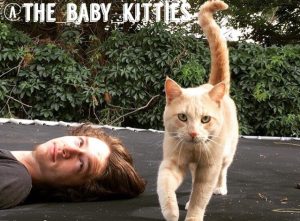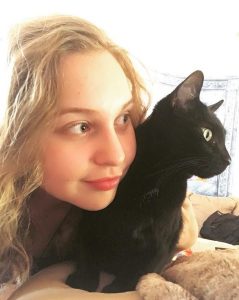Your best friend has a cat, your sister just got two kittens for her kids, and even your mom took in a cat…so you decide to get a cat too! You’re probably thrilled as you scroll through the photos of cats up for adoption at your local animal shelters, and you should be! Keep in mind that there are a few questions you should consider. Will I have enough time to dedicate to my new cat as they settle into their new home? Will my cat be friendly to my guests? Should I get a more independent breed? These are all very important questions, but before you begin selecting cat breeds and picking out combs and collars, start doing research to figure out how much adopting your new cat will cost you. Most of the following information is from the Simple Dollar’s Pet Ownership Costs Guide.
Initial Cost
The initial cost for your new cat is your adoption or purchase fee, vaccination fees, and cat equipment. One of the perks about cats is that they are generally less expensive than dogs, especially when it comes to illnesses or injuries. The costs are much, much lower! When it comes to adoption, the breed of your desired cat can affect the adoption price dramatically, especially if you purchase your new cat from a breeder. For instance, an American Bobtail can cost between $500 to $700, whereas the average price of a Maine Coon is $1,000.
But if you adopt a cat from your local shelters, you might only be charged between $50 to $175 for your adoption fee. Luckily, some shelters will even provide a microchip, a spay or neuter operation, and vaccinations for your new cat without charge.
If you’re adopting a kitten, the veterinarian will probably insist on a few vaccinations that will protect your cat later in life. These vaccinations include feline leukemia, rabies, panleukopenia, and calicivirus. Keep in mind that each vaccination can cost between $50 to $100, and you may have to pay an additional fee for any booster shots. Heartworm prevention medication is very important for cats because there is not an approved medication for heartworm treatment for them. Make sure to get the prevention medication, especially if you live in a Northern or Tropical area.
Once you finally bring your new cat home, you can start buying cat equipment for them! Some basics are a water and food bowl, cat food, a cat box with a scooper, cat litter, and a cat bed. If you feel that you want to get more for your cat, there are cat houses, scratching posts and window perches that you can purchase for your cat. Some stores even sell treats like Catnip Grass and mouse toys. If you want to purchase more cat tools, here’s a list!
- Collar
- Cat Litter Deodorizer
- Name tag and your name, address, and phone number
- Non-toxic Cleanser
- Undercoat brush
- Nail Clippers
- Feline toothpaste and toothbrush
Medical Care
If you adopt a cat from a shelter, you may be charged for their spay or neuter operation. And if you take in a stray, you will need to schedule your cat’s operation soon. Some people are against spaying and neutering, but according to Spay USA, both genders benefit from the operation. Female cats won’t have heat cycles, the chance of uterine, ovarian, and mammary gland tumors can be reduced or eliminated, and it helps reduce the number of stray cats roaming without a home. For male cats, neutering at a young age eliminates spraying or marking of territory, it lessens their desire to try to roam outside, chances of prostate and testicular cancer reduce, there can be a decrease in aggressive or hostile behavior, and they may be better behaved.
During their recovery stage, remember to keep your home quiet and peaceful, try to prevent them from jumping and running for at least two weeks, do not allow them to lick their incision, and check their incision daily to make sure there is no redness, discharge, or swelling. If there is, take your cat to the nearest animal hospital immediately. Make sure to keep up with regular check ups as frequently as you can to keep them as healthy as possible.
Depending on the breed of your cat, you may be faced with specific medical issues. Because of selective breeding, breeders often decide to pass on specific traits and many purebred cats are prone to medical concerns because of this breeding method. Balinese cats may suffer from Nystagmus (a neurological disorder which causes rapid eye movement), Lymphoma, Megaesophagus, Aortic Stenosis, Asthma and Amyloidosis (a disease that happens when a type of protein called amyloid is deposited in body organs).
Devon Rex cats can suffer from Urticaria Pigmentosa (a dermatological problem that causes sores that become crusty on their body), Hip Dysplasia, and Congenital Hypotrichosis (hereditary baldness).

These cats look very different from each other, and they have their own health issues to go with their unique looks.
And the Himalayan cat suffers from Seborrhea Oleosa, Feline Hyperesthesia (a nervous system disorder), Progressive Retinal Atrophy, or Dental Malocclusions (cat’s teeth don’t fit well together). Regardless of your cat’s breed, remember to schedule your cat for routine (annually or biannually) veterinary visits; but remember to put aside funds for unexpected accidents or illnesses that may occur. If you adopt a cat who turns out to have physical or mental disabilities, you may have to seek specific professional medical care for your cat.
Feeding
Although feeding may seem like one the easiest parts of being a cat owner, it can be a more difficult process then some owners anticipate. Ideally, you should feed your cat a medium to high quality food. Avoid Science Diet, Fancy Feast, and Iams. Some of the best diets you can provide for your cat are raw, homemade food, human-grade canned food, or Blue Buffalo dry food. Visit Better Life Natural Pet Foods for even more detailed information and personalized help for your cat’s feeding.
Keep in mind that cats can develop allergies to food that is most frequently fed to them, so remember to keep your cat’s diet flexible, especially if you’ll be feeding them dry food. Cats mostly develop allergies to beef, seafood, soy, wheat gluten, lamb, corn, and dairy products. If you notice itchy skin, vomiting, hair loss or scratching, take your cat to a veterinarian and change their diet.
Grooming
Some people forget that their cats need grooming, the same way we need to groom ourselves daily. Your cat’s hair length can generally determine the routine you create for your cat. A shorthaired breed like an Egyptian Mau, Burmese, American Shorthair, or a Savannah cat may have to brushed once or twice every two weeks. A longhaired breed such as a Persian, Ragdoll, Birman, or a Somali cat should be brushed every day. If you decide to give your cat a bath, you may expect a few scratches. If you decide to take your cat to a professional groomer, you may be charged between $30 to $50; but you can also purchase cat bathing wipes for your feline instead of water and soap. Remember to clean your cat’s ears to prevent infections from growing wax, and to keep their claws trimmed to avoid splintering of broken claws.
If you use the TSD Pet Cost Calculator, you’ll be able to roughly calculate what your first-year costs for your new cat. For instance, I put in the information for the most recent addition to my family, Fredrick Douglass. With his vaccines, cost of food, toys, a litter box, bowls, collar and harness, and the amount of days I travel a year, it’s calculated that I will spend about $985 a year on Frederick Douglass.
Test it out for your new pet, and good luck finding your purr-fect pal!
Elanda-Isabella Atencio, our Feline Editor, is on her road to being a “crazy” cat lady. She has three cats; a moody Missus, a wild Baby Kitty, and notorious Fredrick Douglass. She was raised with cats, chickens, dogs, and geese. From cleaning coops, morning dog runs, picking eggs, to growing catnip, Elanda enjoys pampering her pets. Elanda is a student at New Mexico State University, earning her BA in Creative Writing and is Editor-in-Chief of the online arts journal, Independent Noise and reader for Puerto del Sol. She plans to move to Oregon, where she hopes to take her cats on daily walks when it’s overcast and cool. If you’d like to contact Elanda, email her at eincatencio@gmail.com.






